The NFPA Standards Council issued the 2020 version of the National Electrical Code® (NEC®) in August 2019. In January 2020, states may begin the process of deciding whether to adopt the new NEC-2020 or another edition of the Code. Massachusetts, which historically has been the first state to adopt the latest NEC near the beginning of the Code cycle year, is poised to adopt the 2020 NEC in January. Other states and local jurisdictions are adopting older, existing versions of the NEC. California, for example, begins enforcement of the NEC-2017 in January 2020.
IAEI News is debuting a new column starting in January 2020 called Code Watch. In this column, we are presenting code adoptions across the United States and elsewhere. While this article simply can’t cover every single jurisdiction (that would be a book), we want to give a forum where both local and state/provincial jurisdictions can announce the enforcement of new electrical codes.
First, Understanding the Lingo
In Canada, most of it not all of the regional provinces adopt the latest version of the Canadian Electrical Code. In the United States, every state has its own practices with regards to adoption, enforcement, and so forth. Thankfully, the terms and enforcement procedures are relatively consistent across the board. Here are a few to help you get started. Just be careful to double-check with your local jurisdiction to find out exactly what rules you need to follow.
Code Cycle. The NEC is revised every three years; this three-year period is called the NEC Code Cycle. The term also applies to local jurisdictions as to when they adopt and begin enforcement of a specific code. It does not always follow the NEC Code Cycle period. For example, Colorado adopted the NEC-2017 in July 2017 and most likely will adopt the NEC-2020 in July 2020. They traditionally have a three-year code cycle, just with varying dates. The simplest way to look at it is that the code cycle is the time between the adoption of one version of the NEC and another.
Statewide adoption. The NEC is enforced across all local jurisdictions within the state. Some jurisdictions may elect to adopt local amendments.
Hybrid adoption. Often this term refers to when a state department adopts the NEC for state-owned buildings, unincorporated areas, or even licensing. Local jurisdictions can adopt and enforce a different version of the NEC. Sometimes this term gets mixed up with statewide adoption, as in the state adopts a minimum code, but local jurisdictions can adopt more stringent codes.
Local adoption. The state does not adopt any version of the NEC and leaves adoption up to local jurisdictions. Sometimes individual departments within a state may adopt a code just for use within that department, but local jurisdictions can adopt whatever code they want. There is no regulation at the state level.
Amendments. Amendments are additional requirements or changes to the adopted Code that often take into consideration local conditions, additional safety requirements, historical purposes, etc. For example, adopted amendments in Denver may consider the altitude and the climate versus local amendments in Los Angeles that may consider earthquake-prone areas and its unique climate.
Tentative Interim Amendments (TIA). TIAs are amendments to the NEC that were not published at the time of the first or second draft. They are only active between editions of a Code and are usually brought up before the code panels before the adoption of the next NEC. For example, when the 2017 NEC was approved in August 2016, TIAs may crop up between this code and the creation of the 2020 Code that cover issues within the Code.
![Figure 1. U.S. NEC Adoption by Edition. Statewide includes states that enforce the adoption of the code across all jurisdictions. All includes state enforce statewide, have a hybrid adoption, or leave adoptions up to local jurisdictions but do have state-level departments that adopt a version of the Code. [Three states have two adopted codes, which are reflected in the numbers.]](https://iaeimagazine.org/wp-content/uploads/2020/02/20_01_Hildreth_Code_Adoption_fig2-1024x511.jpg)
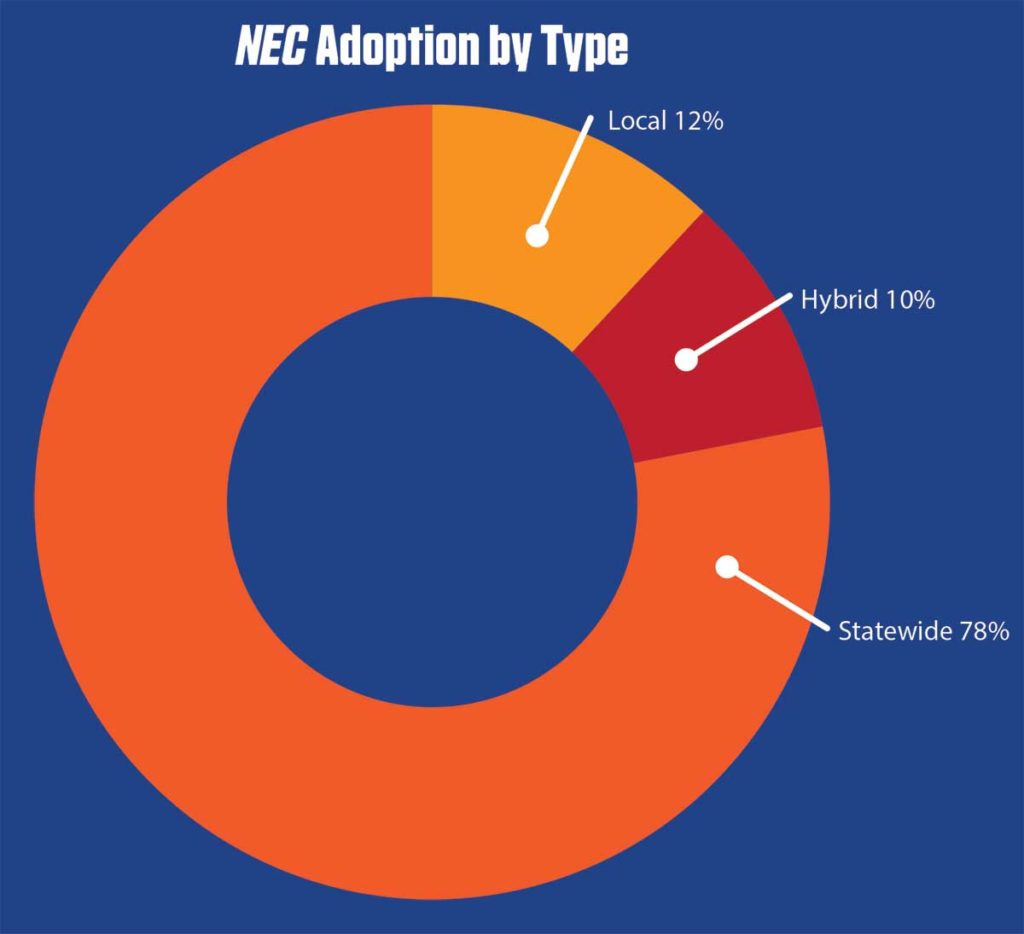
Ready to discover what states are up to as of January 2020? Let’s get started.
Alabama
NEC-2014
Effective: July 1, 2016
Enforcement: Hybrid
Agency: State of Alabama Building Commission
Alabama Energy & Residential Codes Board
P O Box 301150
Montgomery, Al 36130-1150
(334) 242-4082
Quick Fact: Alabama does not have a statewide standard, as the adopted code only applies to state buildings, schools, hotels, and motion picture studios. Here are a few of the local jurisdictional adoptions:
- County of Shelby — NEC-2017
- City of Montgomery — NEC-2017
- City of Birmingham — NEC-2014
- City of Mobile — NEC-2014
- City of Tuscaloosa — NEC-2014
- City of Hoover — NEC-2014
- City of Dothan — NEC-2014
- County of Madison — NEC-2002
Alaska
NEC-2017
Effective: May 9, 2018
Enforcement: Statewide
Agency: Division of Labor – Standards and Safety
P.O. Box 111149
Juneau, AK 99811
(907) 465-4855
Quick Fact: The adopted code is considered the minimum statewide, but local jurisdictions can adopt codes that are newer (i.e. NEC-2020). Enforcement can be minimal itself as there are only a small number of inspectors covering the entire state outside of Anchorage, Fairbanks, and Juneau.
Arizona
N/A (Local)
NEC-2008 (Board of Manufactured Housing only)
Enforcement: Local
Agency: Not applicable
Quick Fact: Arizona does not have statewide adoption of the NEC. Jurisdictions such as Phoenix and Tucson do adopt the code directly. Here are a few of the local adoptions:
- City of Phoenix — NEC-2017, adopted June 6, 2018
- City of Tucson — NEC-2017, effective January 1, 2019
- City of Mesa — NEC-2017, effective February 10, 2019
- City of Tempe — NEC-2017
- City of Prescott — NEC-2017, effective June 11, 2019
- City of Peoria — NEC-2017
- City of Scottsdale — NEC-2014
- City of Gilbert — NEC-2011, effective December 7, 2013
Arkansas
NEC-2017
Effective: January 1, 2018
Enforcement: Statewide
Agency: Arkansas Department of Labor
Arkansas Board of Electrical Examiners
10421 West Markham
Little Rock, AR 72205-2190
(501) 682-4500
https://www.labor.arkansas.gov/electrical-inspection-and-licensing
Quick Fact: Arkansas is one of the states where the adopted code is considered the minimum electrical standard. Jurisdictions can adopt codes that are better than the minimum (such as the NEC-2020).
California
NEC-2017
Effective: January 1, 2020
Enforcement: Statewide
Agency: California Building Standards Commission
2525 Natomas Park Drive, Suite 130
Sacramento, CA 95833
(916) 263-0916
Quick Fact: California is on a three-year code cycle as well. Local jurisdictions are required to enforce the Code as adopted but are allowed to request approval from the CBSC based on local geographic, climactic, or geologic conditions.
Colorado
NEC-2017
Effective: July 1, 2017
Enforcement: Statewide
Agency: Colorado State Electrical Board
1560 Broadway, Suite 1350
Denver, CO 80202
(303) 894-2300
https://www.colorado.gov/pacific/dora/Electrical
Quick Fact: Colorado is another state on a three-year cycle and will most likely adopt the NEC-2020 this year. An interesting thing to note is that while the state does adopt the Code statewide, local jurisdictions have up to a year to adopt the most recently adopted standard.
Connecticut
NEC-2017
Effective: October 1, 2018
Enforcement: Statewide
Agency: Department of Construction Services
Office of State Building Inspector
450 Columbus Boulevard Suite 1303
Hartford, CT 06103
(860) 713-5900
Quick Fact: The 2020 State Building and Fire Safety Codes based on 2018 editions of the International Code Council codes and the NEC-2020 are presently under review. The compilation of public proposals was finished on May 20, 2019, but no adoption date has been set.
Delaware
NEC-2014
Effective: March 11, 2016
Enforcement: Statewide
Agency: Fire Prevention Commission/
State Fire Marshal
1463 Chestnut Grove Road
Dover, DE 19904-1544
Phone: (302) 739-3160
https://statefiremarshal.delaware.gov/
Quick Fact: Delaware is one of the states where jurisdictions are required to adopt the NEC enacted by the Delaware Fire Prevention Commission. The state requires examinations/certifications to be undertaken by all electrical inspector licensees.
District of Columbia
NEC-2011
Effective: March 28, 2014
Enforcement: Districtwide
Agency: Construction Codes Coordinating Board
Department of Consumer and Regulatory Affairs
1100 4th Street, SW
Washington, DC 20024
(202) 442-4400
https://dcra.dc.gov/page/construction-codes-laws-and-regulations-0
Quick Fact: In October 2015, the CCCB began a cycle to review the NEC-2014 and the 2015 ICC Codes. A second notice of proposed rulemaking was published in the DC Register on July 26, 2019, but no updates have been adopted at this time and the district is still on the NEC-2011.
Florida
NEC-2014
Effective: December 31, 2017
Enforcement: Statewide
Agency: Florida Department of Business & Professional Regulation
2601 Blair Stone Road
Tallahassee, FL 32399-1027
(850) 487-1824
https://www.floridabuilding.org/c/default.aspx
Quick Fact: The state of Florida is currently reviewing and processing an adoption of the NEC-2017 with an enforcement date of December 31, 2020.
Georgia
NEC-2017
Effective: January 1, 2018
Enforcement: Statewide
Agency: State Codes Advisory Board
Department of Community Affairs
60 Executive Park South, NE
Atlanta, GA 30329-2231
(404) 679-4840
Quick Fact: The DCA formed a new task force to review and update NFPA 70 from the NEC-2017 to the NEC-2020. Meetings were held in Fall 2019 and continued into the New Year. Based on the state’s past three-year code cycles, it will likely be effective on January 1, 2021.
Hawaii
NEC-2017
Effective: July 26, 2018
Enforcement: Hybrid
Agency: Hawaii Building Codes Commission
Kalanimoku Building
1151 Punchbowl Street
Honolulu, HI 96813
(808) 586-0400
Quick Fact: The state of Hawaii passed a rule that as of July 2018, the state had to adopt the most recent edition of the model codes, including the NEC, within one year of publication. The four Hawaii counties — Oahu, Maui, Kauai, and Hawaii – Big Island — have two years in which to adopt locally.
Idaho
NEC-2017
Effective: July 1, 2017
Enforcement: Statewide
Agency: Division of Building Safety, Electrical Bureau
1090 E. Watertower St., Suite 150
Meridian, ID 83642
(208) 334-3950
Quick Fact: The state of Idaho requires all electrical installations to comply with the NEC, which they adopt on a traditional three-year cycle. Based on past adoptions, they are also likely to be adopting the NEC-2020 within the year.
Illinois
N/A (Local)
NEC-2008 (Commercial Occupancies for areas with no local adoption authority)
Effective: July 1, 2011
Enforcement: Local
Agency: Capital Development Board
Building Codes & Regulations
3rd Floor Stratton – 401 South Spring
Springfield, IL 62706
https://www2.illinois.gov/cdb/Pages/default.aspx
Quick Fact: The state of Illinois adopted the NEC-2008 statewide for non-building code jurisdictions. Those jurisdictions that have adopted a building code are not affected, but the rest of the state is. Some of the local jurisdictions that have adopted the NEC include:
- City of Chicago — Chicago Electrical Code incorporates provisions of the NEC-2017, effective March 1, 2018
- City of Springfield — NEC-2011, effective November 19, 2013
- City of Decatur — NEC-2014
- County of Peoria — NEC-2014
- City of Rockford — NEC-2014
- City of Joliet — NEC-2014
- City of Champaign — NEC-2014
- City of Aurora — NEC-2008 (residential), NEC-1999 (all others)
Indiana
NEC-2008
Effective: August 26, 2009
Enforcement: Hybrid
Agency: Indiana Department of Homeland
Security, Fire & Building Safety Division
Indiana Government Center South
302 West Washington Street
Indianapolis, IN 46204
(317) 232-2222
http://www.in.gov/dhs/2375.htm
Quick Fact: Local jurisdictions are not allowed to adopt or enforce their own electrical code unless it has been approved by the Commission. The Office of the State Building Commissioner inspects all buildings and structures in areas without approved local building departments.
Iowa
NEC-2017
Effective: January 1, 2018
Enforcement: Statewide
Agency: State Fire Marshal Division, Building Code Bureau
215 East 7th Street
Des Moines, Iowa 50319
(515) 725-6145
http://www.dps.state.ia.us/fm/building/index.shtml
Quick Fact: Iowa is an example of a state that has statewide adoption with amendments. For example, the Iowa board voted to retain several GFCI amendments from the NEC-2011 and voted to eliminate some of the AFCI requirements from 210.12(D) and 406.4(D)(4).
Kansas
n/a (Local)
NEC-2008 (State-owned buildings)
Effective: February 4, 2011
Enforcement: Local
Agency: Kansas State Fire Marshal
800 SW Jackson Street, Suite 104
Topeka, KS 66612-1216
Phone: (785) 296-3401
Quick Fact: The Kansas State Fire Marshal is responsible for enforcing the NEC-2008 for state-owned buildings, but local jurisdictions can adopt and enforce different codes. Here are a few examples of local jurisdictions throughout Kansas:
- Sedgwick County — NEC-2017
- City of Olathe — NEC-2017, effective September 1, 2019
- City of Lawrence — NEC-2017, effective July 1, 2019
- City of Shawnee — NEC-2017
- Wyandotte County and Kansas City, KS — NEC-2011
- City of Overland Park — NEC-2011
- City of Fort Scott — NEC-2011
- City of Topeka — NEC-2017
- City of Wichita — NEC-2017
Kentucky
NEC-2017
Effective: January 1, 2019
Enforcement: Statewide
Agency: Department of Housing, Buildings, and Construction
101 Sea Hero Rd., Ste. 100
Frankfort, KY 40601
(502) 573-0365
http://dhbc.ky.gov/Pages/default.aspx
Quick Fact: Kentucky first adopted and began enforcement of the 2018 Kentucky Building Code (IBC-2015), 2018 Kentucky Residential Code (IRC-2015), and NEC-2017 without amendments on August 22, 2018. However, a grace period was allowed until the beginning of 2019.
Louisiana
NEC-2014
Effective: February 1, 2018
Enforcement: Statewide
Agency: Louisiana State Uniform Code Council (LSUCCC)
8181 Independence Blvd.
Baton Rouge, LA 70806
(225) 922-0817
http://lsuccc.dps.louisiana.gov/
Quick Fact: The LSUCCC (Uniform Construction Code) adoption of the NEC-2014 is mandatory for all construction, reconstruction, alterations to circuits, and additions to homes. No jurisdiction can adopt anything more or less stringent than what is adopted at the LSUCCC. The law requires that the state reviews, amends, and adopts the latest NEC within five years of publication. For example, 2017 NEC was published in 2016, and the state is required to adopt some form of it prior to August 2021.
Maine
NEC-2017
Effective: July 1, 2017
Enforcement: Statewide
Agency: Electricians’ Examining Board
35 State House Station
Augusta, ME 04333-0035
(207) 624-8457
https://www.maine.gov/pfr/professionallicensing/professions/electricians/index.html
Quick Fact: Maine released updated amendments on November 6, 2017, which then became mandatory throughout the state. Maine is another state on a three-year Code cycle, so they will likely adopt the NEC-2020 sometime this year.
Maryland
NEC-2014
Effective: January 1, 2016
Enforcement: Hybrid
Agency: Office of the State Fire Marshal
1201 Reisterstown Road
Pikesville, MD 21208
(410) 653-8980 / (800) 525-3124
https://mdsp.maryland.gov/firemarshal/Pages/StateFireMarshal.aspx
Quick Fact: Maryland’s State Fire Marshal’s office adopted the NEC-2014 and it applies to state-owned facilities and to any jurisdictions that have never adopted a statute to govern electrical work. Local jurisdictions that have adopted their own code include:
- Division of Labor and Industry — NEC-2017
- Prince George’s County — NEC-2014
- Frederick County — NEC-2014, effective August 15, 2015
- Baltimore County — NEC-2017, effective August 31, 2017
- City of Baltimore — NEC-2014
- Anne Arundel County — NEC-2014, effective March 19, 2016
- Queen Annes County — NEC-2017, effective April 1, 2017
- Charles County — NEC-2014, effective August 3, 2015
Massachusetts
NEC-2020
Effective: January 2020
Enforcement: Statewide
Agency: Department of Fire Services
1 State Road
Stow, MA 01775
(978) 567-3713
https://www.mass.gov/service-details/massachusetts-electrical-code
Quick Fact: Home to NFPA, which produces the NEC, Massachusetts is usually the first state to adopt the National Electrical Code at the beginning of each code cycle. This adoption is across all local jurisdictions as required by regulations and statute.
Michigan
NEC-2014 (Residential)
NEC-2017 (Commercial)
Effective: January 4, 2019 (NEC-2017) and February 8, 2016 (NEC-2014)
Enforcement: Statewide
Agency: Bureau of Construction Codes & Fire Safety
P.O. Box 30254
Lansing, MI 48909
(517) 241-9313
https://www.michigan.gov/lara/0,4601,7-154-89334_10575—,00.html
Quick Fact: The Michigan Electrical Code was updated in January 2019. The adoption of the NEC-2017 covers everything other than 1- and 2-family dwellings. These dwellings are still covered under the Michigan Residential Code Adoption, which uses the NEC-2014.
Minnesota
NEC-2017
Effective: July 1, 2017
Enforcement: Statewide
Agency: Department of Labor and Industry, Construction Codes and Licensing Division
443 Lafayette Road N.
St. Paul, MN 55155-4342
(651) 284-5005
https://www.dli.mn.gov/business/electrical-contractors/electrical-codes-and-standards
Quick Fact: The Construction Codes and Licensing Division (CCLD) was created in 2005 with the consolidation of seven construction-related state programs. Minnesota is one of the states that typically adopt on a three-year code cycle and are likely to adopt the NEC-2020 later this year.
Mississippi
N/A (Local)
Effective: N/A
Enforcement: Local
Agency: Mississippi Department of Insurance, Fire Marshall
State Building Code Commission
P.O. Box 79
Jackson, MS 39205
https://www.mid.ms.gov/ubc/ubc.aspx
Quick Fact: As of August 1, 2014, all counties and municipalities must enact uniform building codes (one of the last three adopted editions of the IRC) unless they opted out prior to November 30, 2014. Local jurisdictions that have adopted the NEC include:
- City of Biloxi — NEC-2017, effective April 24, 2018
- City of Gulfport — NEC-2017, effective September 1, 2018
- City of Meridian — NEC-2017
- City of Jackson — NEC-2014
- City of Southaven — NEC-2011, effective April 7, 2015
- City of Hattiesburg — NEC-2011
- City of Batesville — NEC-2011
- City of Tupelo — NEC-2011, effective February 20, 2018
Missouri
N/A (Local)
NEC-2005 (Department of Public Safety, Division of Fire Safety)
Effective: N/A
Enforcement: Local
Agency: Department of Public Safety, Division of Fire Safety
205 Jefferson Street, 13th Floor
Jefferson City, MO 65102
(573) 751-2930
Quick Fact: The NEC-2005 was adopted for state-owned buildings, but local jurisdictions can adopt and enforce their own codes. Local jurisdictions that have adopted the NEC include:
- City of Kansas City — NEC-2011, effective June 3, 2012
- City of Jefferson — NEC-2014, effective October 21, 2017
- City of St. Louis — NEC-2017, effective August 1, 2018
- City of Springfield — NEC-2011
- City of Columbia — NEC-2017, effective October 1, 2019
- City of Independence — NEC-2017
- City of Joplin — NEC-2017, effective April 2018
- City of St. Joseph — NEC-2017
Montana
NEC-2014
Effective: October 23, 2014
Enforcement: Statewide
Agency: Montana Department of Labor & Industry, State Building Codes Bureau
P.O. Box 200517
Helena, MT 59620-0517
(406) 841-2300
http://bsd.dli.mt.gov/building-codes-permits
Quick Fact: Local jurisdictions may adopt a building code by ordinance but may only include codes adopted by the Building Codes Bureau, including the currently adopted NEC. Jurisdictions that have not adopted the code, especially unincorporated areas, fall under the jurisdiction of the State Building Codes Bureau.
Nebraska
NEC-2017
Effective: August 1, 2017
Enforcement: Statewide
Agency: Nebraska Electrical Division
1220 Lincoln Mall, Suite 125
Lincoln, NE 68508
(402) 471-3550
https://electrical.nebraska.gov/
Quick Fact: The State Electrical Act requires that licensees complete twelve contact hours of continuing education by January 1 of each odd-numbered year. These shall include a minimum of six contact hours studying the NEC. Nebraska is also a state that will most likely adopt the NEC-2020 this year based on past three-year code cycle trends.
Nevada
N/A (Local)
NEC-2011 (State Public Works Division)
Effective: N/A
Enforcement: Local
Agency: State Public Works Division
1830 E. Sahara Ave., Suite 204
Las Vegas, NV 89104
(702) 486-5115
Quick Fact: Nevada does not adopt or enforce electrical building codes by state law and local jurisdictions are responsible for their own code adoptions, although some do group by regions to establish standards. Local jurisdictions that have adopted the NEC include:
- Northern Nevada Region — NEC-2017
- July 1, 2019
- Participating jurisdictions include: Carson City, City of Sparks, Pershing County, City of Fernley, Douglas County, Washoe County, City of Reno, Lyon County, Storey County
- Southern Nevada Region (Southern Nevada Building Officials) — NEC-2017
- Participating jurisdictions include Clark County, Henderson, Las Vegas, North Las Vegas, Boulder City, Mesquite, and Pahrump.
New Hampshire
NEC-2017
Effective: January 1, 2018
Enforcement: Statewide
Agency: State Building Code Review Board
Commissioner’s Office
Department of Safety
33 Hazen Drive
Concord, NH 03305
(603) 223-4289
https://www.nh.gov/safety/boardsandcommissions/bldgcode/
Quick Fact: The State Building Code Review Board (hereafter referred to as “BCRB”) is charged with the responsibility for reviewing and amending the New Hampshire Building Code. The State Fire Marshal’s Office reviews plans over state-owned property, the New Hampshire University System, educational occupancies, healthcare occupancies, and in locations where there is no code enforcement mechanism and the municipality has requested assistance.
New Jersey
NEC-2017
Effective: September 3, 2019
Enforcement: Statewide
Agency: Bureau of Code Services
N.J. Department of Community Affairs
101 South Broad Street
Trenton, NJ 08625
(609) 292-7899
https://www.state.nj.us/dca/divisions/codes/codreg/
Quick Fact: New Jersey enforces the Uniform Construction Code, which mandates everything from local building code adoption to licensing requirements. Electrical inspectors are required to take electrical certification examinations through the licensing program within the UCC.
New Mexico
NEC-2017
Effective: February 1, 2018
Enforcement: Statewide
Agency: New Mexico Regulation & Licensing Requirements Department
Electrical Bureau
2550 Cerrillos Road
Santa Fe, NM 87505
(505) 476-4700
http://www.rld.state.nm.us/construction/electrical.aspx
Quick Fact: The New Mexico Electrical Bureau reviews and recommends contents for the licensing and certification examinations for all electrical trades. It also performs state-wide electrical inspections in CID jurisdiction, electrical plan review and oversees electrical permitting.
New York
NEC-2017
Effective: May 12, 2020
Enforcement: Statewide
Agency: New York State Department of State
Division of Code Enforcement and Administration
99 Washington Ave, Suite 1160
Albany, NY 12231
(518) 474-4073
Quick Fact: New York State’s Uniform Fire Prevention and Building Code (Uniform Code) is adopted statewide except for New York City. The Department of Buildings (of NYC) currently enforces the NEC-2008, which took effect on July 1, 2011
North Carolina
NEC-2017
Effective: June 12, 2018
Enforcement: Statewide
Agency: North Carolina Department of Insurance
Building Code Council
1202 Mail Service Center
Raleigh NC 27699-1202
(919) 647-0000
Quick Fact: Electrical installations are inspected by municipal and county electrical inspection departments. All municipal and county electrical inspectors must be certified by the North Carolina Code Officials Qualification Board. State-owned buildings are inspected by the North Carolina Department of Insurance, Engineering and Building Codes Division.
North Dakota
NEC-2017
Effective: July 1, 2017
Enforcement: Statewide
Agency: North Dakota State Electrical Board
1929 North Washington Street Suite A-1
Bismarck, ND 58507-7335
(701) 328-9522
Quick Fact: The North Dakota State Electrical Board has the responsibility to examine applicants and issue licenses to those having the necessary qualifications and knowledge in the laws of electricity and electrical codes. The board also has jurisdiction over all electrical installations. North Dakota is also likely to adopt the NEC-2020 this year based on past code cycles.
Ohio
NEC-2017
Effective: July 1, 2019
Enforcement: Statewide
Agency: Board of Building Standards
6606 Tussing Road
P.O. Box 4009
Reynoldsburg, Ohio 43068-9009
(614) 644-2613
https://www.com.ohio.gov/dico/bbs/
Quick Fact: The state of Ohio requires 30 hours of continuing education courses before renewal of residential and commercial personnel certification within a three-year period. These include building officials, electrical inspectors, plans examiners, and building inspectors.
Oklahoma
NEC-2014
Effective: September 15, 2017
Enforcement: Statewide
Agency: Oklahoma Uniform Building Code Commission
2401 NW 23rd Street, Suite 2F
Oklahoma City, OK 73107
(405) 521-6550
Quick Fact: The adopted code is considered the state minimum. Also, as a result of State Bill 733 with an effective date of November 1, 2019, the Construction Industries Board began enforcement of licensing requirements for inspectors. All licenses performing building and construction inspections are required to meet all requirements for licensing and code standards.
Oregon
NEC-2017
Effective: October 1, 2017
Enforcement: Statewide
Agency: Department of Consumer & Business Services (BCD)
Building Codes Division
P.O. Box 14470
Salem, OR 97309-0404
(503) 378-4133
https://www.oregon.gov/bcd/codes-stand/Pages/electrical.aspx
Quick Fact: The Oregon Electrical Specialty Code (OESC) is based on NEC-2017 with amendments that are based on local geographic, climactic, or geologic conditions. Oregon also does not adopt the IRC, and Oregon does not adopt the IRC and has developed its own “Low-Rise Residential Code” to cover residential dwellings up to three stories.
Pennsylvania
NEC-2014
Effective: October 1, 2018
Enforcement: Statewide
Agency: Buildings Section
Bureau of Occupational and Industrial Safety
Department of Labor and Industry
1600 Labor and Industry Building
Harrisburg, PA 17120
(717) 787-5279
https://www.dli.pa.gov/ucc/Pages/UCC-Codes.aspx
Quick Fact: The Oregon Electrical Specialty Code (OESC) is based on NEC-2017 with amendments that are based on local geographic, climactic, or geologic conditions. Oregon also does not adopt the IRC, and Oregon does not adopt the IRC and has developed its own “Low-Rise Residential Code” to cover residential dwellings up to three stories.
Rhode Island
NEC-2017
Effective: August 1, 2019
Enforcement: Statewide
Agency: Building Code Commission
Building Code Standards Committee
560 Jefferson Boulevard,
2nd Floor, Suite 200
Warwick, RI 02886
(401) 889-5550
Quick Fact: Rhode Island Building Codes are amendments of the International Building Codes, which are used as the model. The adopted NEC is for mandatory application by governmental bodies that exercise legal jurisdictions over electrical installations and for use by insurance inspectors. Current legislation is ongoing to automatically adopt the NEC in the year of its publication.
South Carolina
NEC-2017
Effective: January 1, 2020
Enforcement: Statewide
Agency: Department of Labor, Licensing Requirements, and Regulation
South Carolina Building Codes Council
110 Centerview Dr.
Columbia, SC 29210
(803) 896-4300
Quick Fact: South Carolina requires that all municipalities enforce building, energy, electrical, plumbing, mechanical, gas, and fire codes, relating to the construction, livability, sanitation, erection, energy efficiency, installation of equipment, alteration, repair, occupancy, classification, or removal of structures located within their jurisdictions as adopted by the state.
South Dakota
NEC-2017
Effective: July 1, 2017
Enforcement: Statewide
Agency: State Electrical Commission
308 S. Pierre St.
Pierre, SD 57501
(800) 233-7765
https://dlr.sd.gov/electrical/default.aspx
Quick Fact: South Dakota is one of the few states in which all electrical wiring installations must be inspected by a state electrical inspector. Seventeen state inspectors (as of October 2019) cover seventeen different districts, both commercial and residential. South Dakota is another state likely to adopt the NEC-2020 this year based on a three-year code cycle.
Tennessee
NEC-2017
Effective: March 19, 2018
Enforcement: Hybrid
Agency: Department of Commerce & Insurance
Electrical Inspection Section Information
State Fire Marshal
500 James Robertson Parkway
Nashville, TN 37243
(615) 741-7170
https://www.tn.gov/commerce/fire-prevention.html
Quick Fact: Thirty local jurisdictions have been granted exemptions and are authorized to perform independent plans reviews. The City of Athens and Shelby County, for example both enforce the NEC-2014
Texas
NEC-2017
Effective: September 15, 2017
Enforcement: Statewide
Agency: Texas Department of Licensing Requirements and Regulation
P.O. Box 12157
Austin, Texas 78711
(512) 463-6599
Quick Fact: The adopted code is considered to be the “minimum standard” for all electrical work in Texas covered under state law. However, municipalities are allowed to make local amendments.
Utah
NEC-2014 (Residential)
NEC-2017 (Commercial)
Effective: Residential (2014) was effective
July 1, 2016
Commercial (2017) was effective
July 1, 2018
Enforcement: Statewide
Agency: Utah Division of Occupational and Professional Licensing Requirements
Uniform Building Code Commission
P.O. Box 146741
Salt Lake City, Utah 84114-6741
(801) 530-6628
https://dopl.utah.gov/programs/ubc/index.html
Quick Fact: When the Utah Legislature adopted the NEC-2014 and 2015 I-codes back in March 2016, a provision was added that the residential codes would be on a six-year code cycle, rather than a three-year.
Vermont
NEC-2017
Effective: October 1, 2017
Enforcement: Statewide
Agency: Electrician’s Licensing
Requirements Board
1311 U.S. Route 302, Suite 600
Barre, VT 05641-2351
(802) 479-7564
https://firesafety.vermont.gov/licensing/electrical
Quick Fact: The Vermont Electrical Safety Codes are also adopted on a three-year code cycle. Electrical installation work in the process of construction at the time of the adoption of the new code, or where a work notice has been validated and work is commenced within 30 days of the adoption, may be completed per the last valid NEC. Being on a three-year code cycle, Vermont may adopt the NEC-2020 this year.
Virginia
NEC-2014
Effective: September 4, 2018
Enforcement: Statewide
Agency: Virginia Department of Housing and Community Development
Main Street Centre
600 E. Main Street, Suite 300
Richmond, VA 23219
(804) 371-7000
https://www.dhcd.virginia.gov/
Quick Fact: The Virginia Uniform Statewide Building Code (USBC) is updated on a three-year cycle and must be complied with when constructing a new building, structure, or addition to an existing building. The updated codes must also be used when maintaining or repairing an existing building or renovating or changing the use of a building.
Washington
NEC-2017
Effective: July 1, 2017
Enforcement: Statewide
Agency: Department of Labor and Industries, Electrical Division
P.O. Box 44000
Olympia, WA 98504
(360) 902-5800
http://www.lni.wa.gov/tradeslicensing/electrical/
Quick Fact: The Department of Labor and Industries is in the process of updating the Washington Administrative Code (WAC) 296-46B, Electrical Safety Standards, Administration, and Installation rules to the NEC-2020, to be effective July 1, 2020.
West Virginia
NEC-2014
Effective: August 1, 2016
Enforcement: Statewide
Agency: West Virginia State Fire Marshal
1207 Quarrier St. (2nd Flr.)
Charleston, WV 25301
(304) 558-2191
https://firemarshal.wv.gov/Pages/default.aspx
Quick Fact: The State Fire Commission establishes the State Building Code (Title 87), which establishes the minimum standards of safe construction of all structures erected or renovated throughout the state.
Wisconsin
NEC-2017
Effective: August 1, 2018 (Commercial)
January 1, 2020 (Residential)
Enforcement: Statewide
Agency: Department of Safety and
Professional Services
4822 Madison Yards Way
Madison, WI 53705
(608) 266-2112
https://dsps.wi.gov/Pages/RulesStatutes/TradesProgram.aspx
Quick Fact: All electrical wiring, installations, equipment and materials used in the construction of dwellings are required to comply with the requirements of the Wisconsin Administrative Electrical Code. Prior to January of this year, residential installations were required to use the NEC-2011.
Wyoming
NEC-2017
Effective: July 1, 2017
Enforcement: Statewide
Agency: Wyoming State Fire Marshal
Department of Fire Prevention and Electrical Safety
320 West 25th Street, 3rd Floor
Cheyenne, WY 82002
(307) 777-7288
Quick Fact: Wyoming traditionally works on a three-year cycle and is expected to adopt the NEC-2020 in the Summer of this year.
Find the latest electrical code adoption updates online on our website. I also highly recommending subscribing to NEMA Code Alerts as their outstanding Field Representatives pull together information from state and local jurisdictions regarding code adoptions and publish updates throughout the year.
Is your local or state jurisdiction going to update their adopted NEC, CEC, or other electrical code? Send us at note at editorial@iaei.org, and we’ll put it in the next edition of Code Watch.


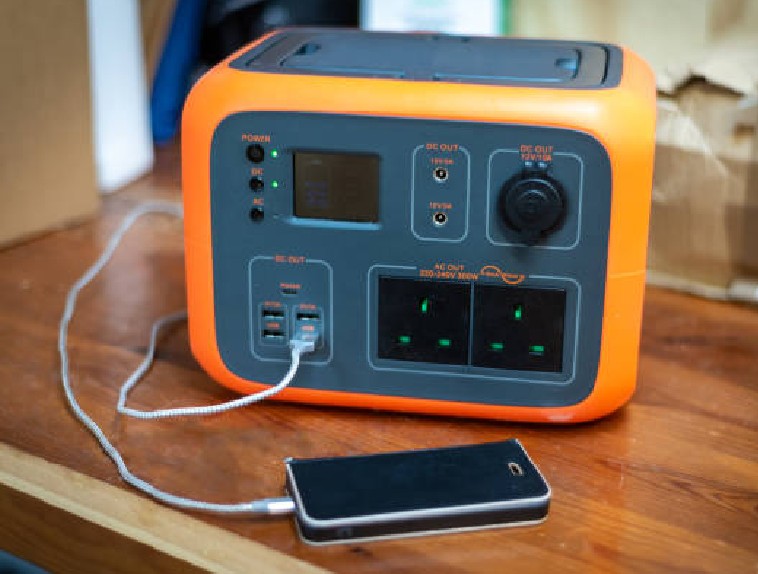
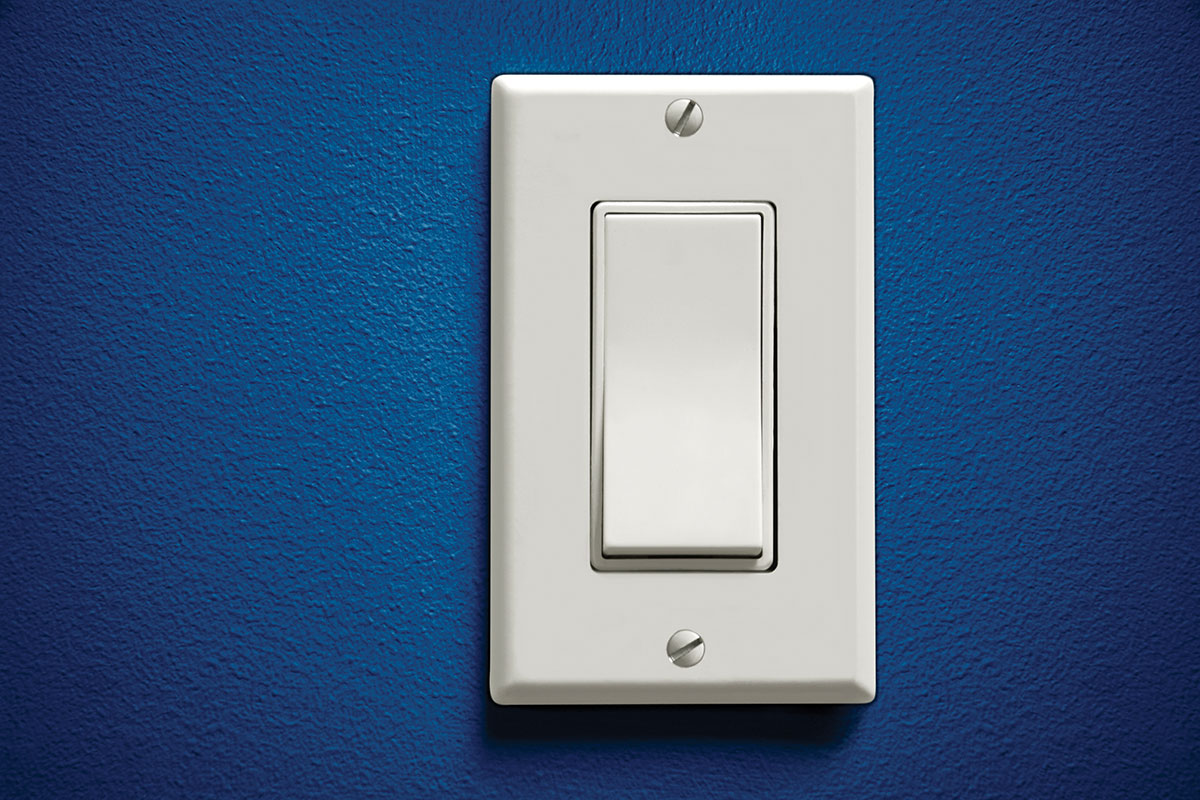
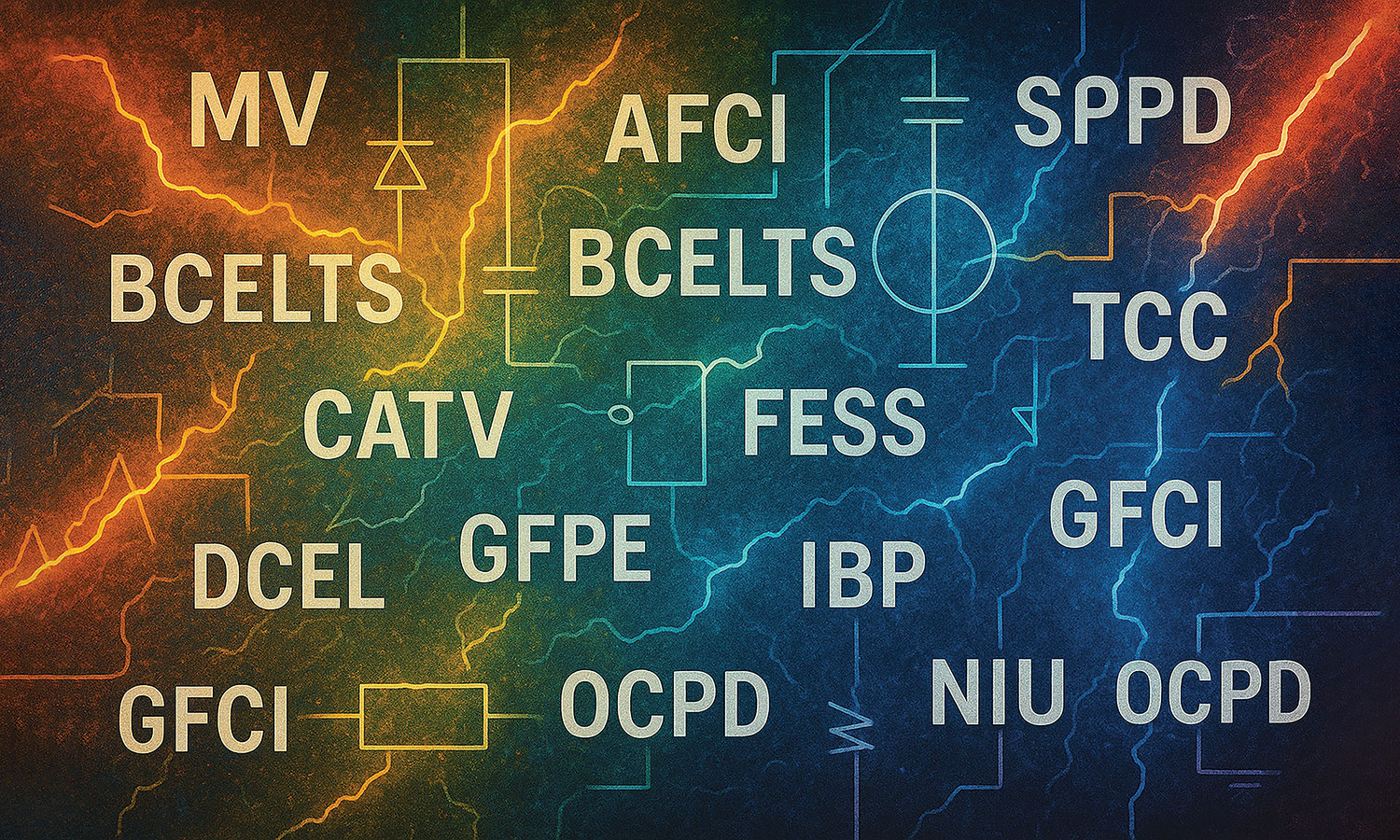
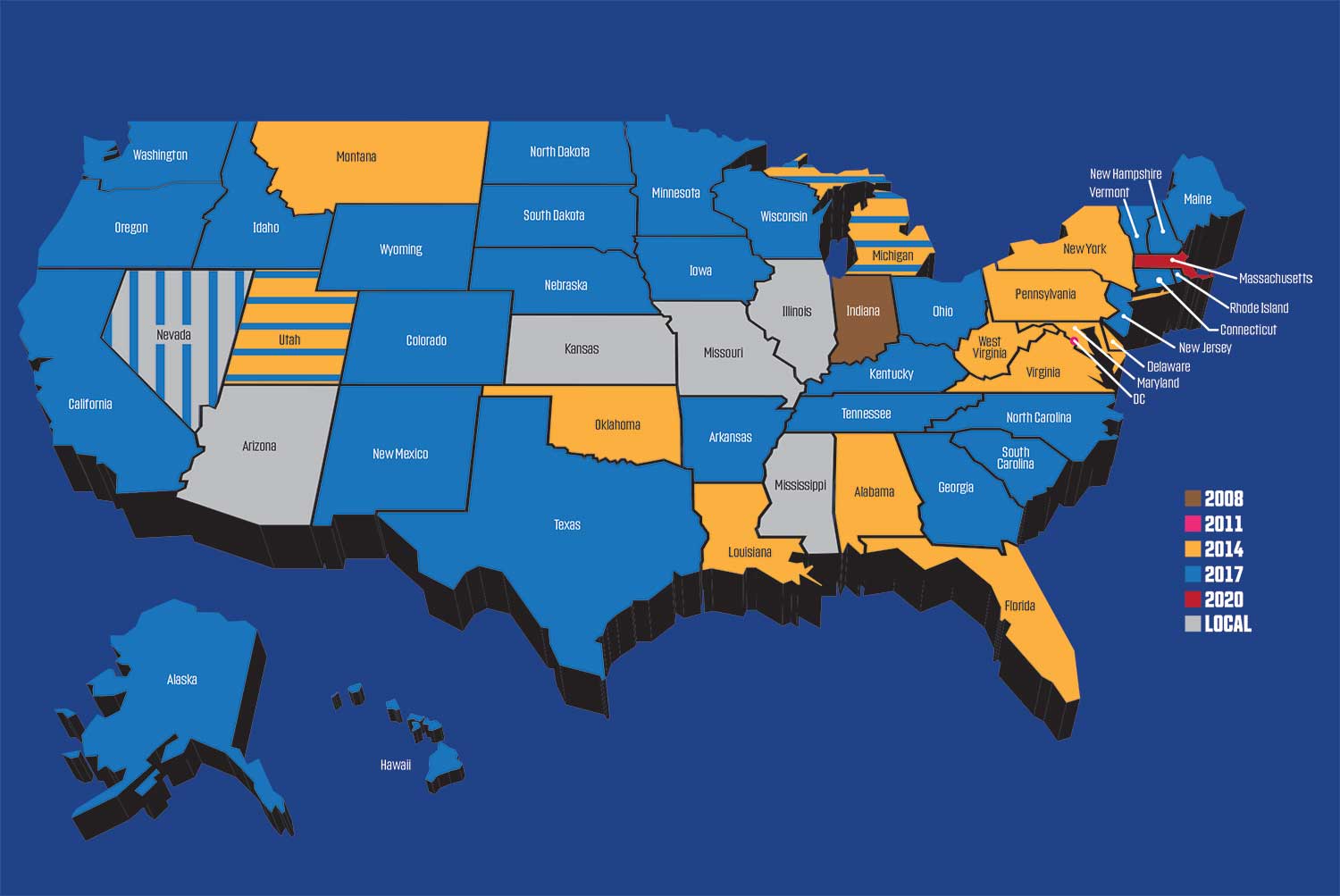






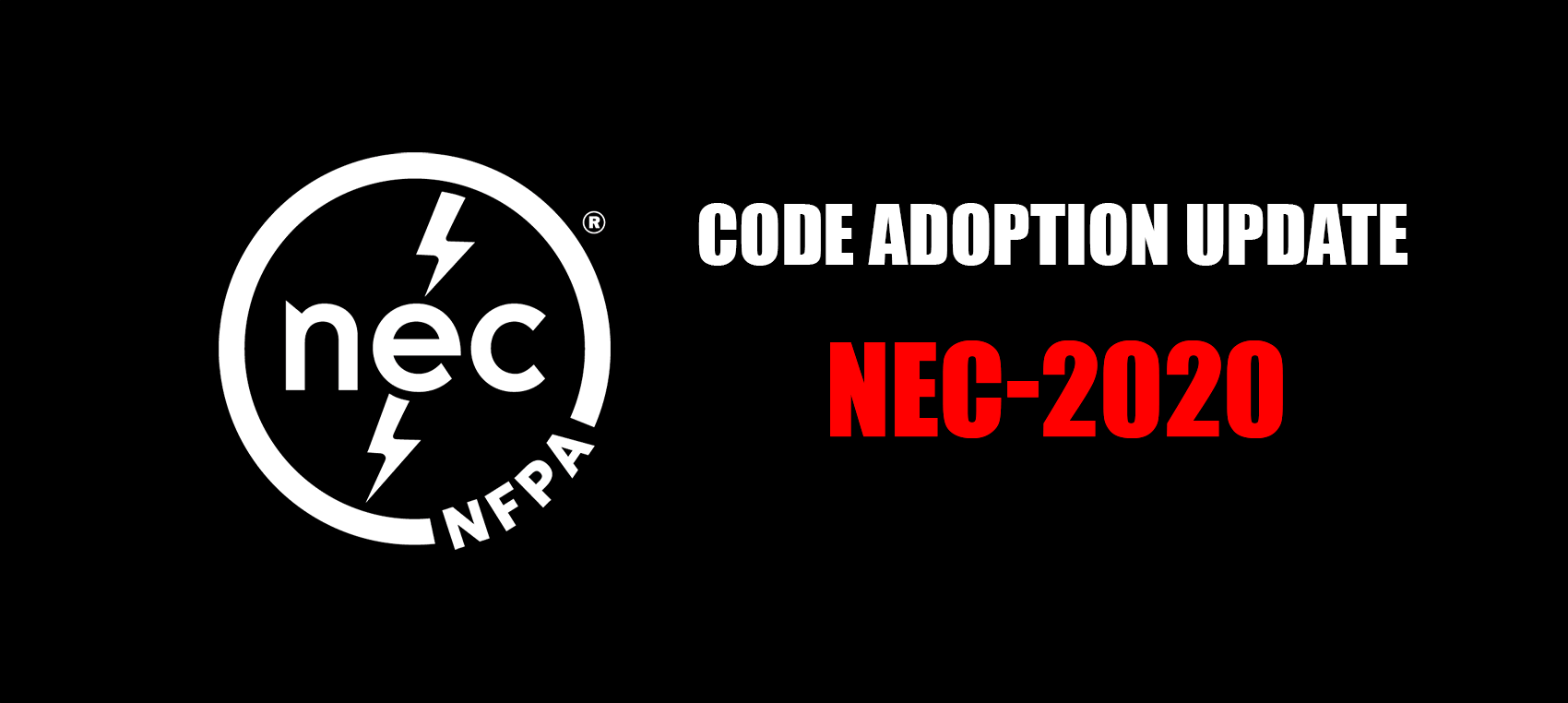
Find Us on Socials